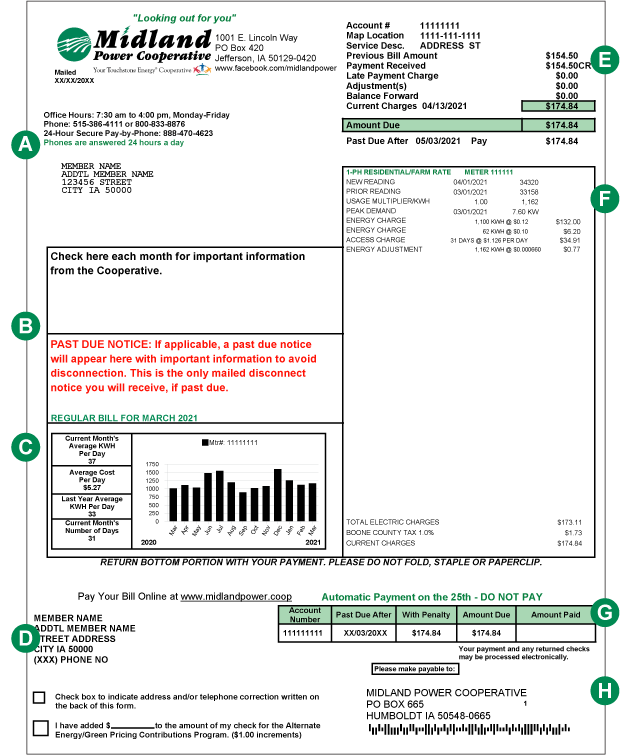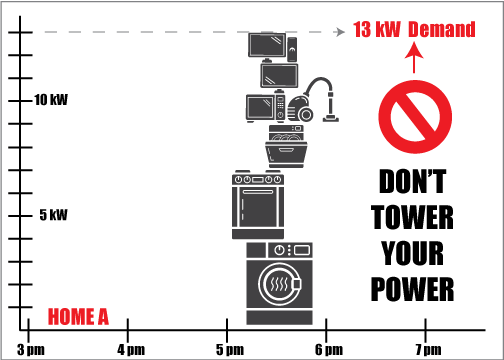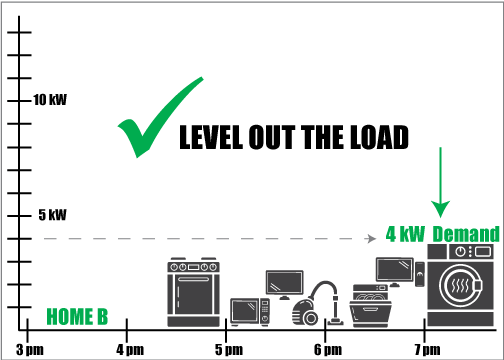
Reach Midland Power Cooperative or its after hours service 24/7 by calling (515) 386-4111 or (800) 833-8876. To use the automated pay-by-phone system 24/7 call (888) 470-4623. Non-urgent information can also be relayed to the co-op by contacting us online.
Check this area each month for information from the cooperative. If applicable, a past due notice will be printed here with important information to avoid disconnection. This will be the only mailed disconnection notice received if the bill is past due.
See your daily average cost and daily average kilowatt-hours used, number of days in this billing period, and year-to-date electric use on the graph.
Your mailing address and primary telephone number are printed on the stub. Your telephone number is very important to us, especially during an outage. Please verify this number and notify us if you want to have a different number listed on your account as the primary contact number, add a cell phone number, or to change your mailing address. You can check the box provided and send us the new information on the back of the payment stub, or submit updates through your online SmartHub account access.
This area includes the account number, which is helpful when making changes to your account, making a payment, or setting up SmartHub account access online or via the mobile app; map location number, which is helpful to our team in knowing the exact physical location of the electric service; and the service description, which is usually an address for emergency responders and it sometime differs from the mailing address for the account.
The account summary shows any payments and adjustments since your last bill, ending with the balance forward, current charges and total amount due. If you are on Budget Billing, your monthly budget amount will be shown here.
Your billing rate, meter number, current readings, kilowatt-hours used and an itemized summary of your current charges are shown here.
- The ENERGY CHARGE is the cost for the kilowatt-hours that a member used during the billing period.
- The ACCESS CHARGE is a fixed cost that exists whether the member uses any kilowatt-hours or not. It helps to cover some (not all) of the co-op's fixed costs including administrative and system maintenance expenses that exist even when no electricity is used.
- The ENERGY ADJUSTMENT is a pass-through charge or credit applied to the bill due to the fluctuating costs of wholesale power purchased by the cooperative. Revenues from the energy adjustment are not kept by Midland Power; they are paid to the power suppliers.
- KWH is the number of kilowatt-hours that the member used during the billing period. It is the difference of the PRIOR READING and the NEW READING on the member's meter.
- PEAK DEMAND lists the day within the billing period in which the location created the highest demand for electricity and lists the peak electric demand for this moment in time. This item is listed on residential bills to help consumers understand how they use electricity.
The total amount due upon receipt of your bill is shown here. If this amount is not paid by the date indicated, a late payment charge will be added. If you are on Automatic Payment or have a credit on your account this information will be printed in this area of the stub.
Write the amount paid in the box on the stub and return by mail or learn about the many other ways to pay your Midland Power bill.
Additional information is located on the back of your bill, including co-op contact information, what to do if you experience a power outage, payment options, programs, terms, and a place to update your contact information on the bill stub. Should the front of the bill include a past due notice, the back of the bill will cover the customer rights and responsibilities to avoid shutoff of electric service for nonpayment.
Peak Demand Info
The way consumers use electricity is just as important as how much electricity they use each month. The higher the “demand” for energy placed on your cooperative and its power providers during peak times of the month, the higher the expenses are for your cooperative. Instead of towering your power use, help your cooperative level the load!
Demand is measured in kilowatts (kW). The wattage of appliances (equipment) can vary greatly. 1,000 watts (1,000 W) = 1 kilowatt (1 kW)
In the example below, the energy consumption in kilowatt-hours (kWh) in Home A and Home B are the same. However, the home with appliances used simultaneously (A) creates a much higher demand. If the co-op charged $1/kW for demand, Home A would be charged $13.00 and Home B would only be charged $4.00.


